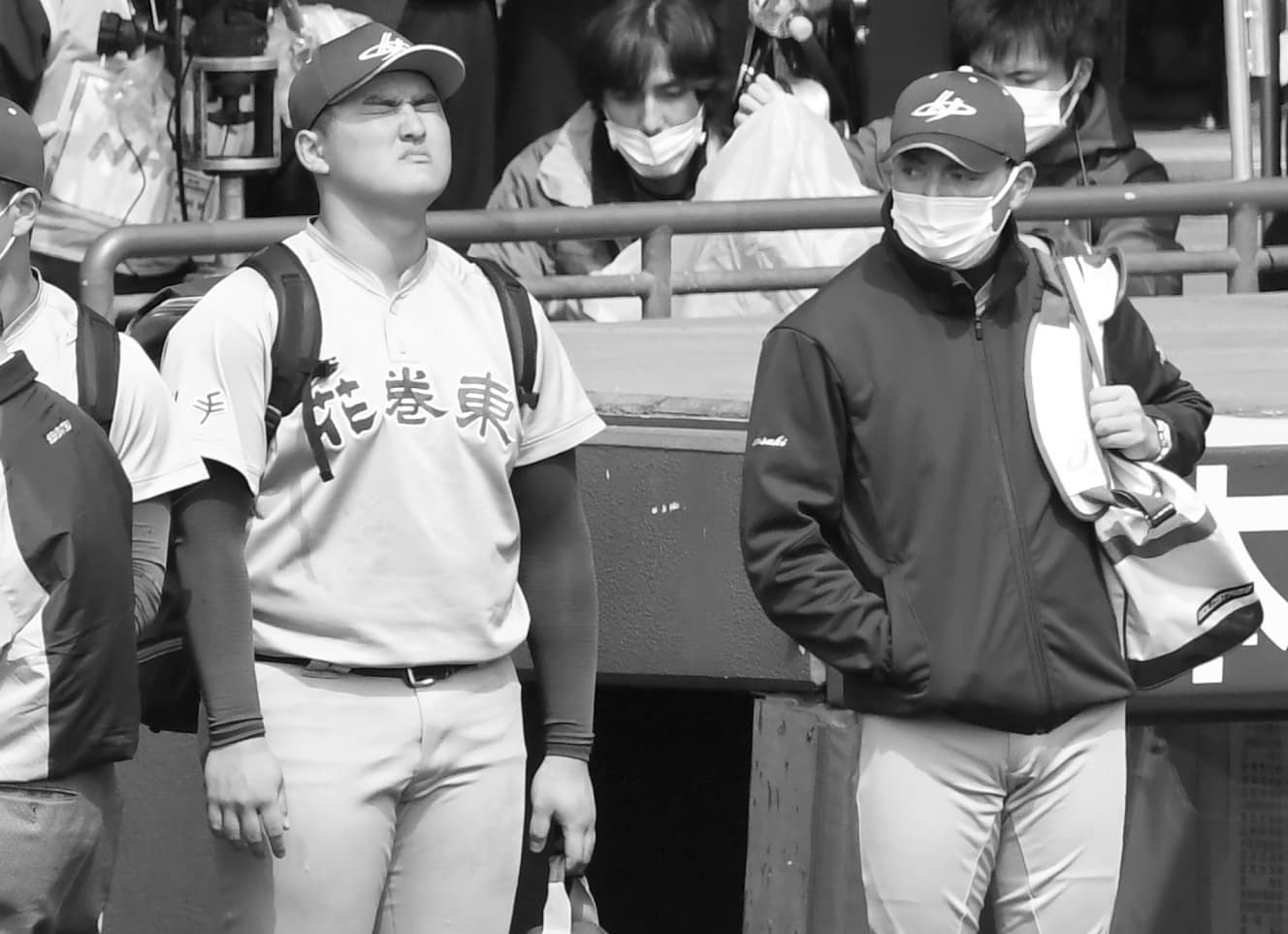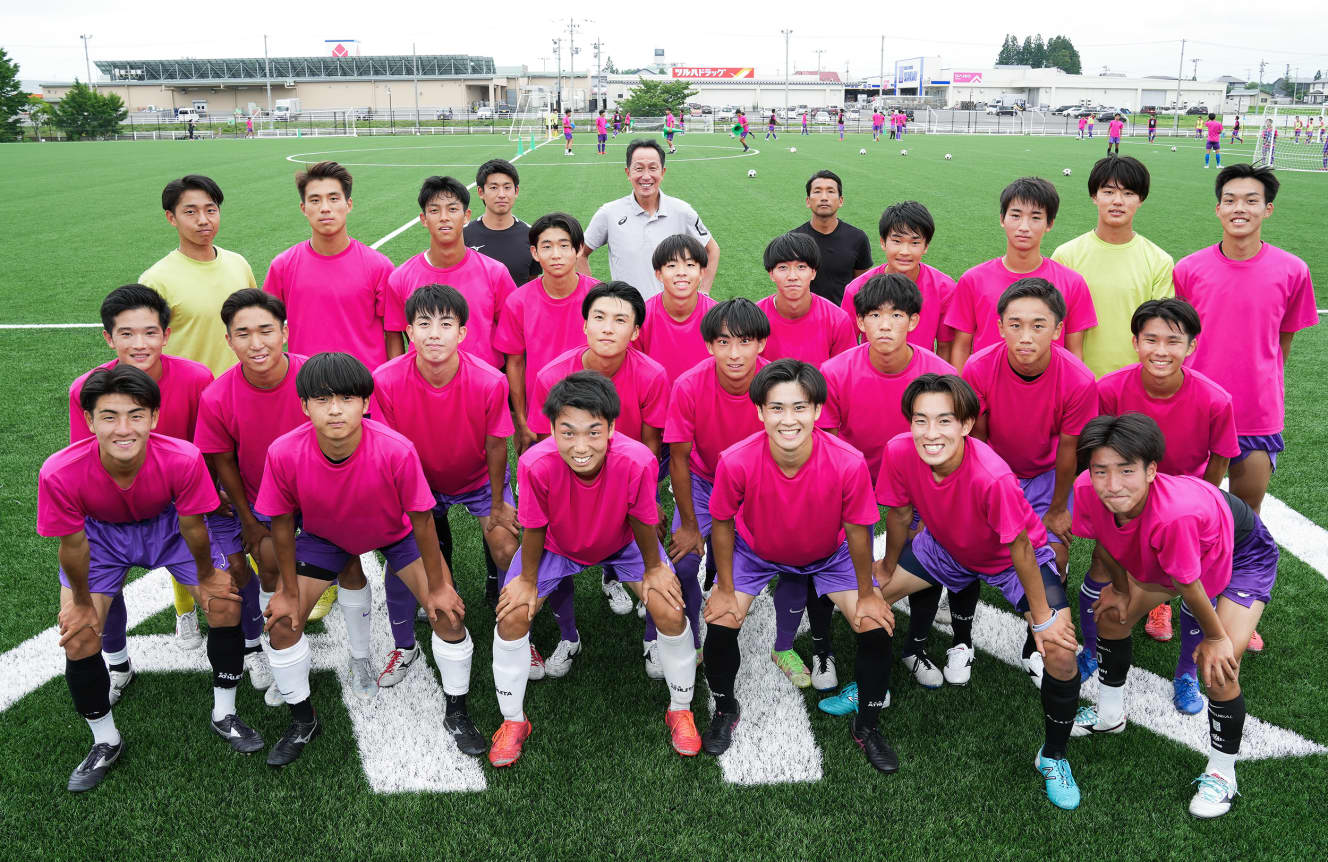Doha Tragedy Fighter Tetsuji Hashiratani: “Passion and Integrity in Nurturing People
Shohei Otani's former coach, Hiroshi Sasaki, and Tetsuji Hashiratani have been in close communication in their private and public lives.

The World Cup Soccer Tournament is less than four months away. In Qatar, the host country of the World Cup, an incident occurred 29 years ago that cannot be overlooked in the history of Japanese soccer. The so-called “Doha Tragedy. Japan’s long-awaited first appearance in the World Cup was ended by a goal conceded on the last play of the game. Tetsuji Hashiratani was the captain of the Japan national team.
A student weighing over 100 kg came to greet the 58-year-old, who maintained a sharp physique.
Hello, sir.”
It was Rintaro Sasaki. Although only a sophomore, he has already hit more than 70 home runs in high school, and his four no-hitters have made the front pages of the national newspapers, making him the man of the moment in high school baseball. Hashitani squinted at him and said, “He’s a cute guy.
He’s a cute guy. I think I first met Rintaro when he had just started junior high school. We’re a family affair, and we used to have barbecues together.
Yes, Hashiratani is now coaching students as a technical advisor for the Hanamaki-Higashi High School soccer team.
When I got up close and personal with his words and actions, I thought he had what it takes to nurture others. Because of him, Yusei Kikuchi and Shohei Otani were both nurtured. I am sure he will continue to do so in the future. It is inevitable that people grow up around him.
He” refers to Hiroshi Sasaki, manager of the school’s baseball team. He is also Rintaro’s father and the head of the school’s sports department. Wanting to strengthen the soccer team to make the high school more attractive, he consulted with his alma mater, Kokushikan University. Hideo Osawa, the chairman of the board of trustees, introduced him to Hashiratani.
Mr. Osawa was the director of the soccer team when I entered the university, and he called me suddenly five years ago. To tell the truth, it seems that my brother (Koichi) and Michelle Miyazawa turned him down, so they approached me. But then I spoke with Mr. Sasaki for the first time, and I felt that he was a very passionate and sincere person. I thought, “I wouldn’t mind working with this person.”
After being assigned to this position, Hashiratani formulated a five-year plan. At first, he spent half of his practice time with the students, bucket in hand, picking up fist-sized pebbles that were lying around on the field.
The first thing we did was to create an environment,” he said. Especially the first three years were for laying the foundation.
After three years, Hashiratani asked the school to add new sand with larger grains. Then, unexpected reinforcements arrived.
Then let’s use artificial turf,” said Sasaki, the director of the school. The voice came from Director Sasaki.
That’s why we were allowed to use artificial turf,” he said. I was joking, but I asked him if Otani and Kikuchi had paid for it. I asked him if Otani or Kikuchi paid for it.
When the field was completed in November 2009, six months after construction began, the students were more motivated than ever. In the same month, the team won its first Iwate Prefecture championship in the rookie tournament, and made a great leap forward to the top four in the Tohoku tournament. The momentum continued, and in May, the team won the Inter-High prefectural qualifying round by a landslide and participated in its first national tournament.
Although he is involved with the school as an outside staff member, teaching was a career he had aspired to in the past. After graduating from college, he became a contract employee of Nissan Motor Co. and planned to return to his hometown of Kyoto to become a teacher after finishing his active career. However, as the momentum for the establishment of the J-League grew, his plans to become a teacher soon disappeared. Teaching students may be the first time in 30 years that he has retrieved something that had been stored away deep inside.
Hashitani recalls the words of German coach Detmar Kramer, the “father of Japanese soccer,” who was involved in founding the Japan Soccer League and also laid the foundation for the Japanese national team.
He said, “Soccer is a sport that turns people from children into adults. Soccer requires accurate judgment and anticipation in various situations, and in the end, this leads to life. I think I understand what Mr. Kramer was saying even more now that I am a coach. Now it’s not just me teaching, but the students are teaching me a lot. If I had experienced this a little earlier, I might have become a better instructor.
In the final year of his five-year plan, Hashiratani stepped on the national stage for the first time at the Inter-High School Championships in July, but his goals go a little further.
The most important goal is to make it to the high school championships (in winter). Both coach Shimizu and I have professional experience, so I want to show them how great it is to be a winner. But in order to win, we have to get stronger. The game is decided by whether you can take one more step, so I want to give them the mentality to be able to take that step.
For a moment, his eyes became sharp. If Hashitani could have taken that “one more step,” he might have made it to the World Cup. I don’t want my students to feel that way. …… The expression on his face may have become more muted with age, but the passion of the fighter has not changed.


From the August 12, 2022 issue of FRIDAY
Interview and text by: Yukihiro Kodama
Born in 1983. Born in Shima City, Mie Prefecture. After working for a sports newspaper, became an editor of Kodansha's soccer website "Gekisaka" in 2011.
Photography: Takashi Kurosawa